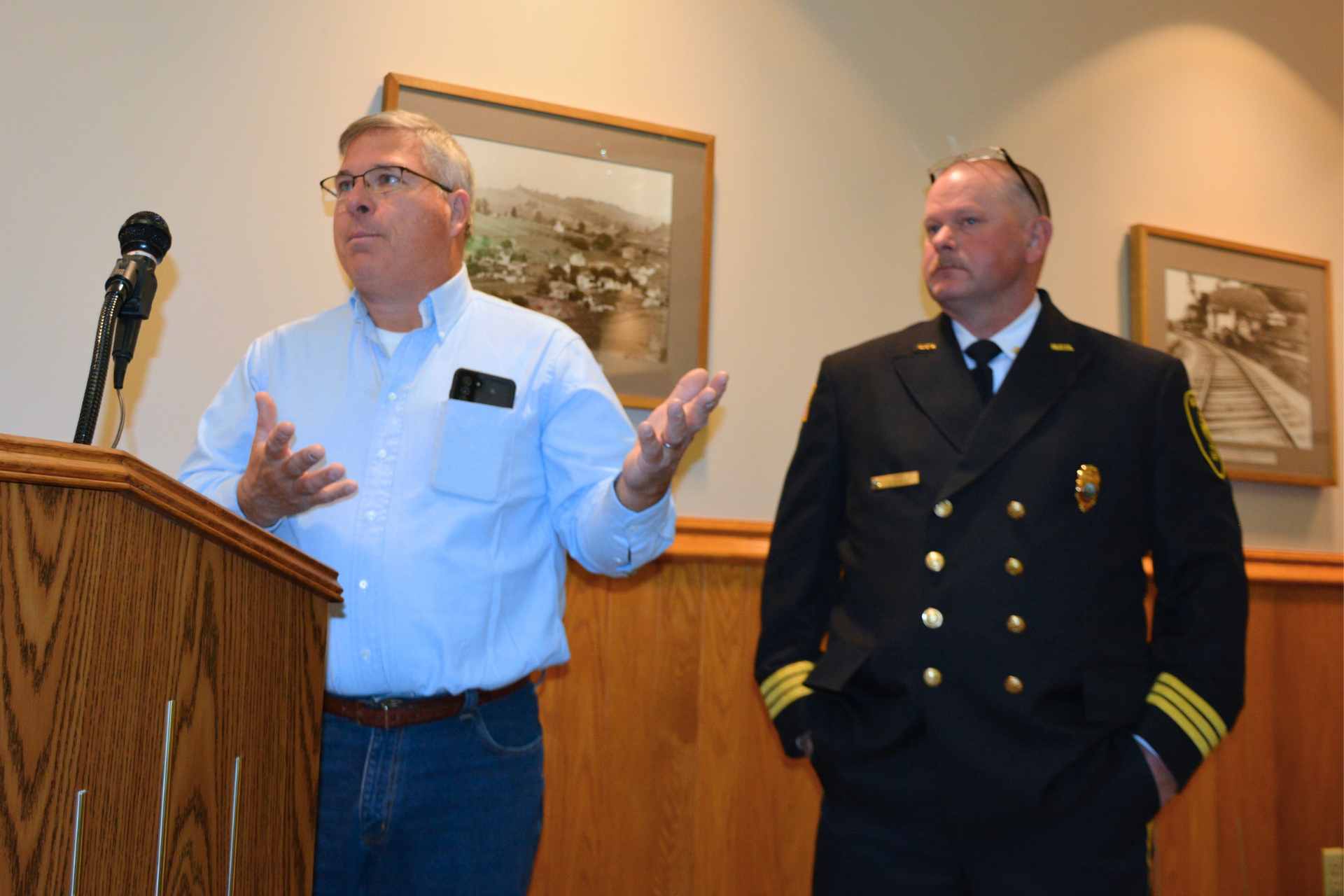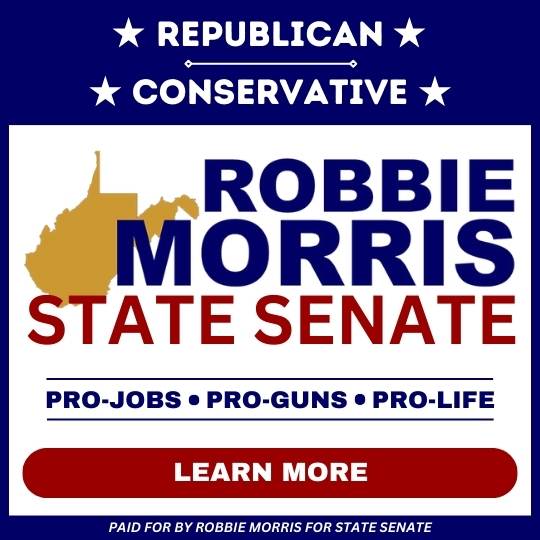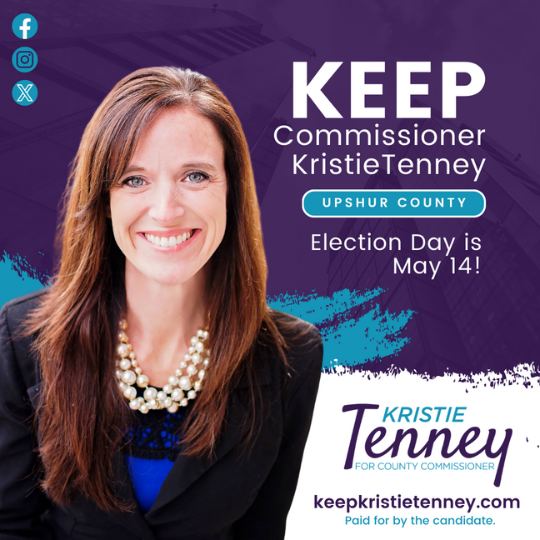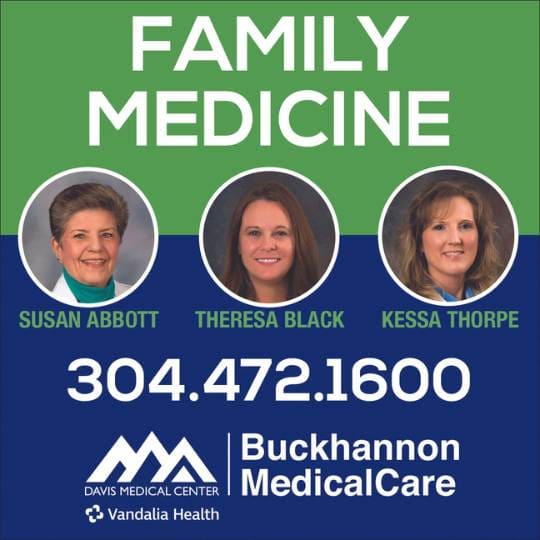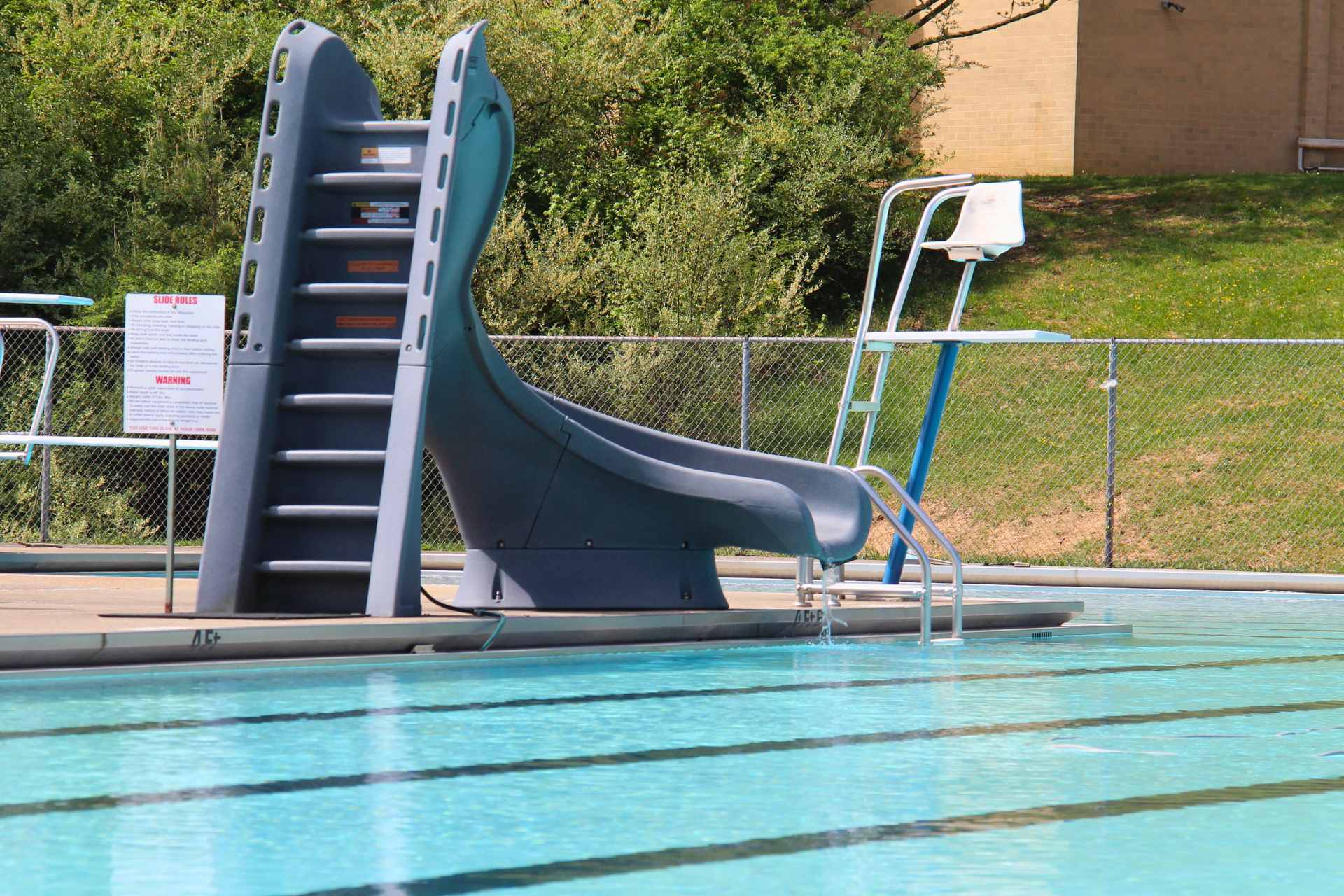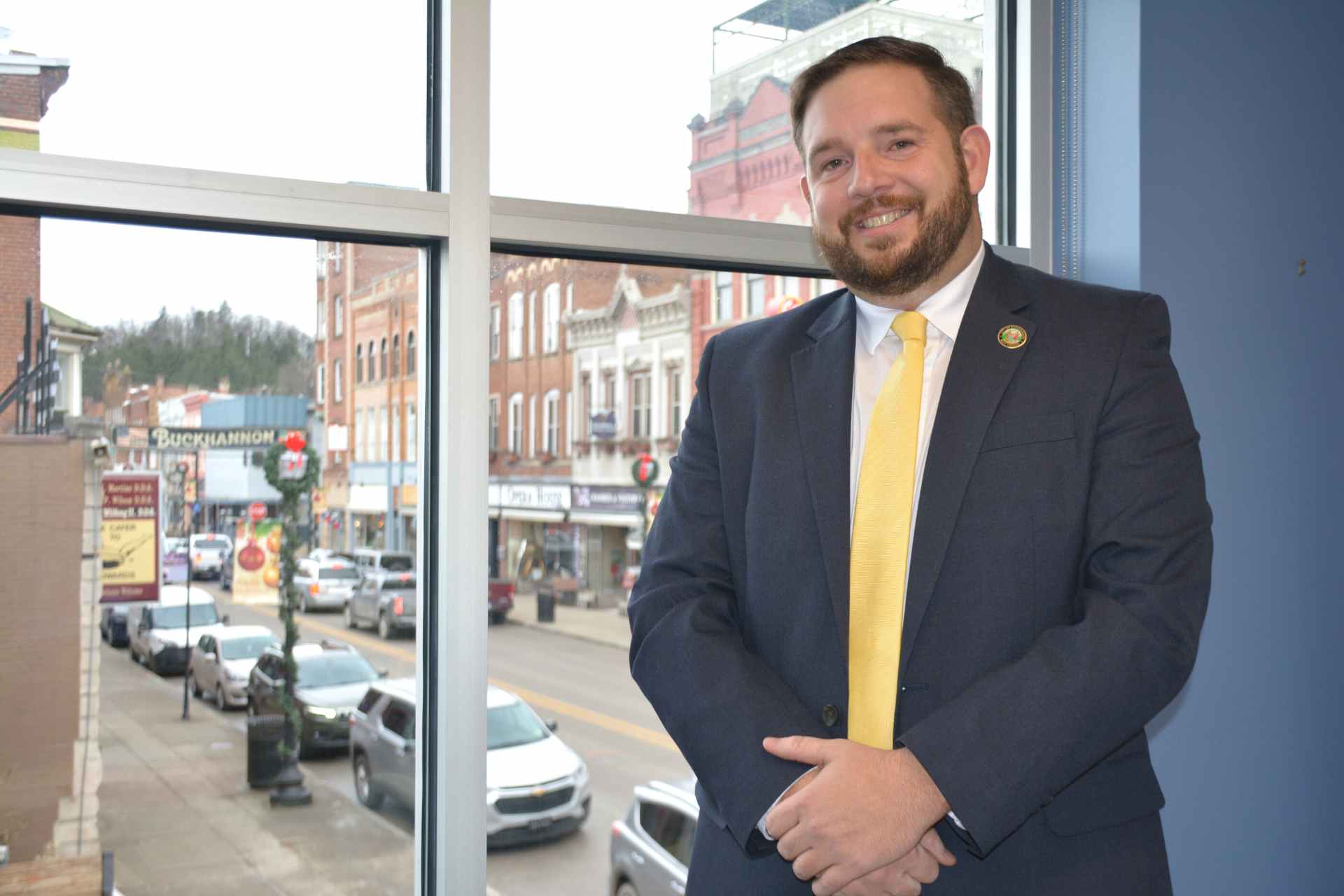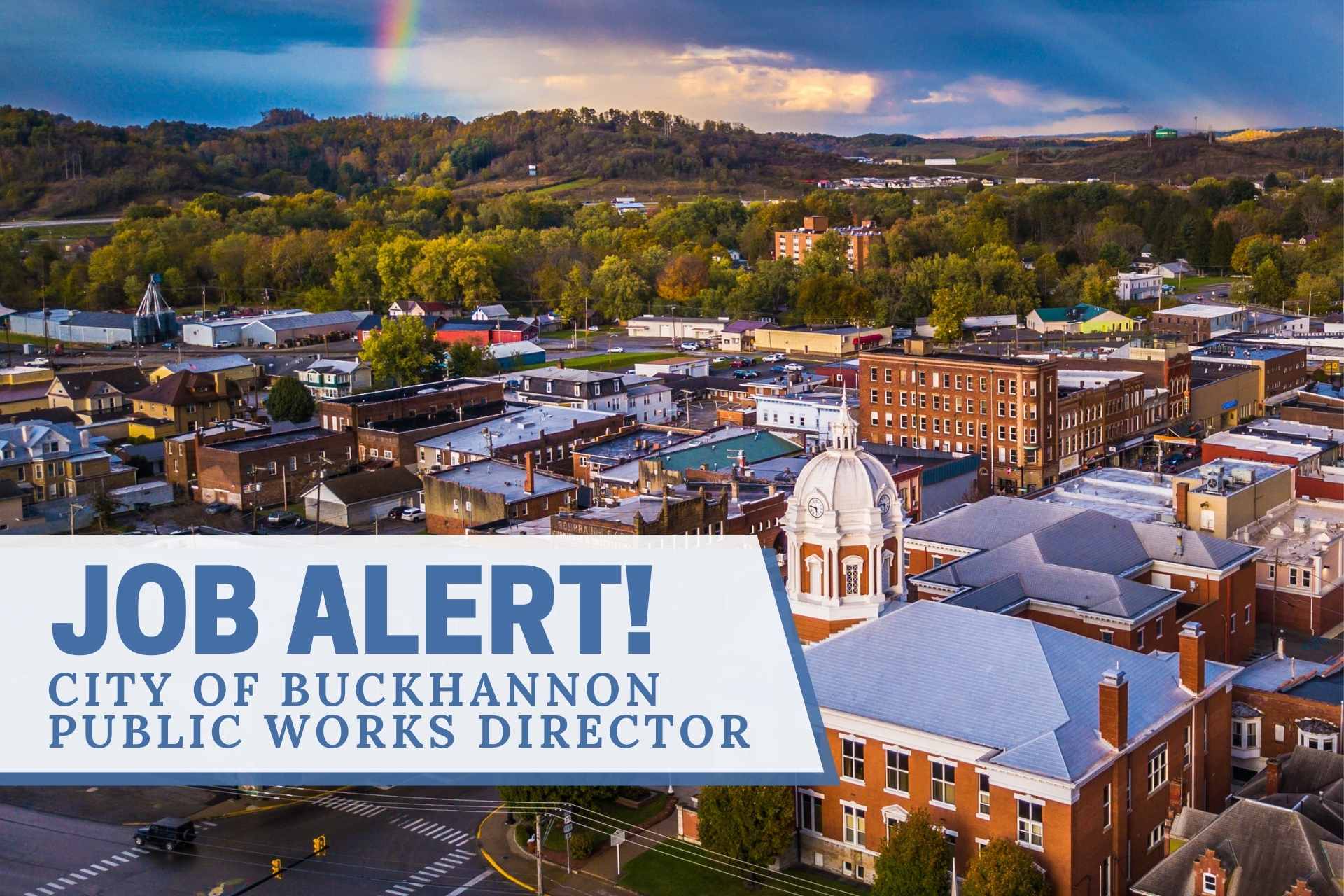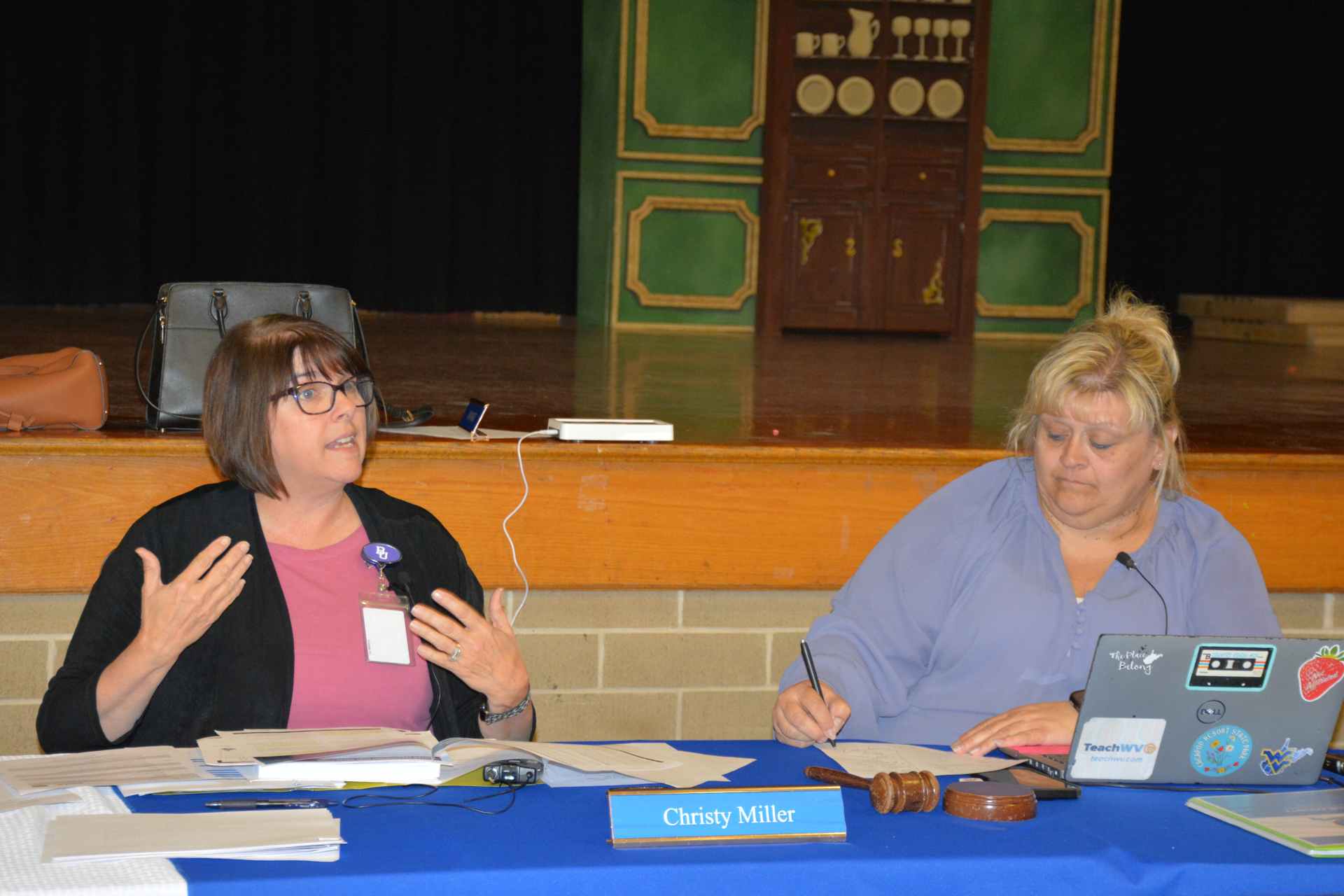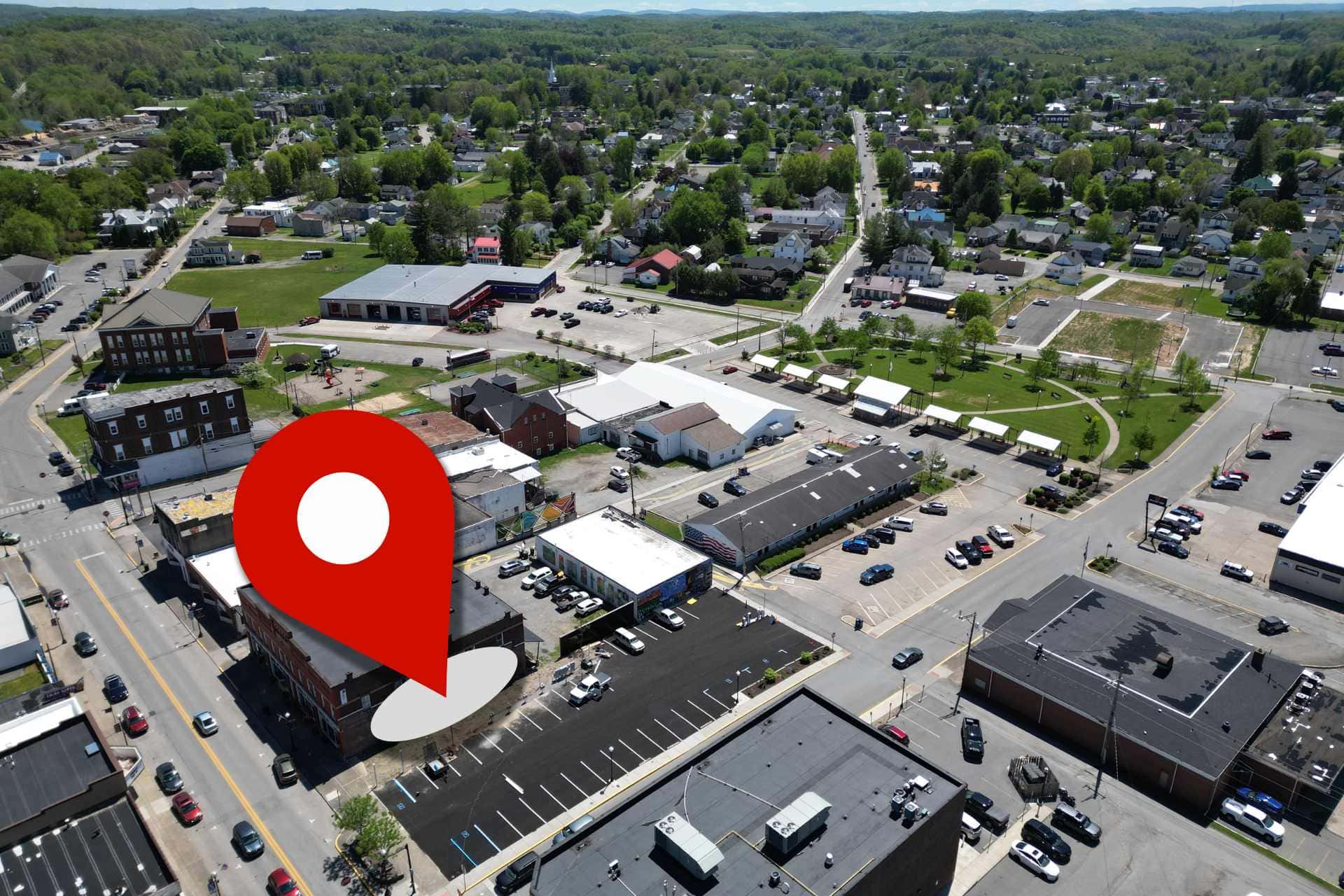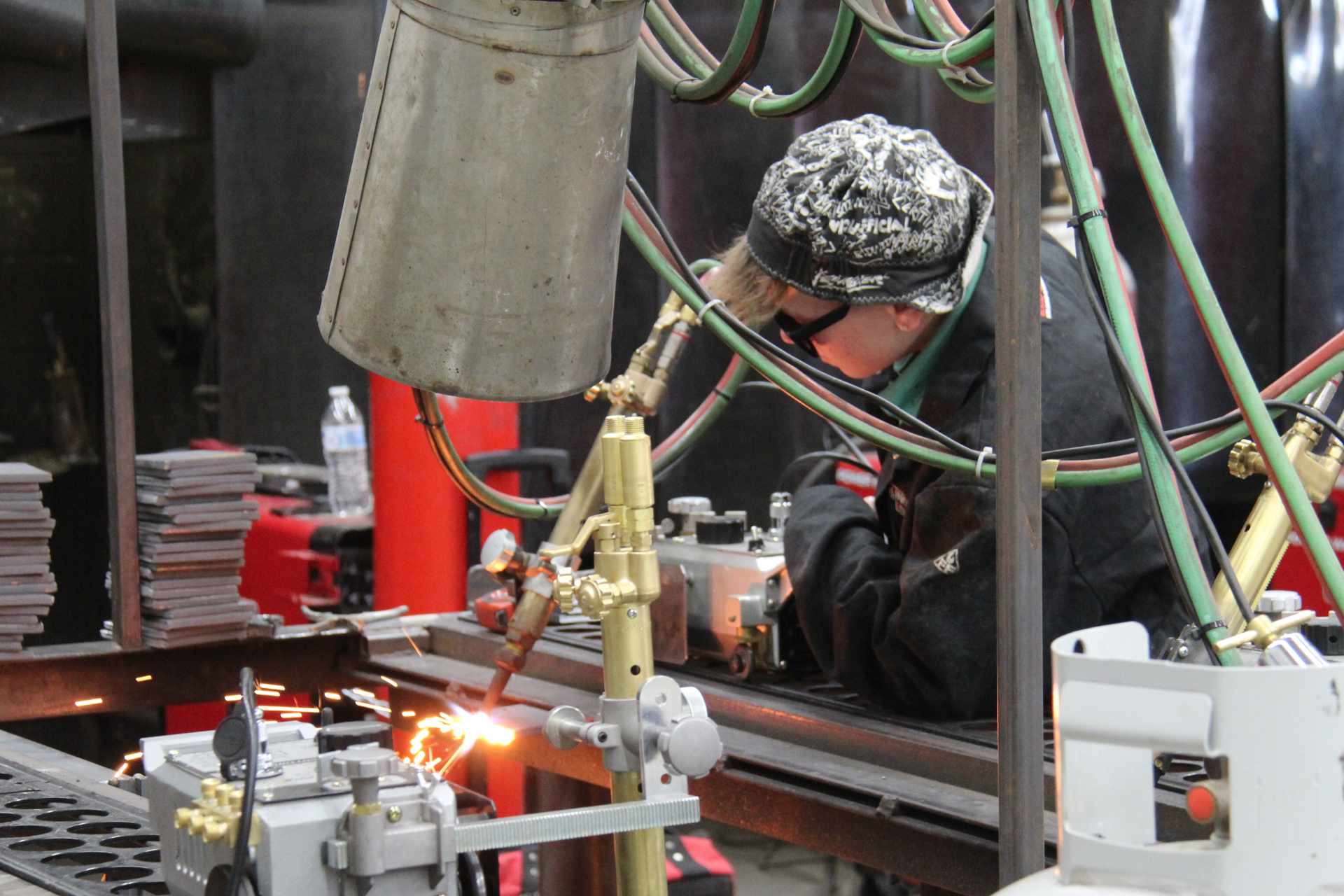BUCKHANNON – Fatal car wrecks, fast-moving structure fires and administering CPR to someone fighting for their life are all too common occurrences in first responders’ workdays.
That stress, day after day, can take a toll on the mental health of firefighters, law enforcement officers and emergency medical service providers.
At the Upshur County Commission’s meeting Thursday, Buckhannon Fire Chief J.B. Kimble addressed the Upshur County Commission about a project he’s been working on for more than a year – establishing a peer support and mental health recovery program for first responders.
Upshur County Administrator Tabatha Perry had known about Kimble’s efforts and reached out to him when the West Virginia Office of Emergency Medical Services announced it was allotting funds to counties through the Emergency Medical Services Salary and Crisis Response grant award.
Based on several factors, Upshur County qualifies for approximately $18,000 — $18,181.81 exactly – in grant funds to establish crisis response services that support first responders, Perry said.
Developing a mental wellness crisis response team
Kimble briefed the commission on a consulting firm he’s been working with to set up a mental wellness crisis response team and the growing need for such a network.
“If you’ve ever had an issue with a family member that has a problem and you don’t know how to help him or how to handle it, that’s where emergency services is in West Virginia right at this point in time,” Kimble said.
“As we respond to people’s worst day, you basically absorb all of that into your mind, and you go back to the firehouse, and you sit around and talk, and we have our humor at the firehouse sometimes, but when you go home, you don’t only have that on your mind, but you may have family issues, you may have financial issues, etc.,” Kimble added. “So, really, PTSD (post-traumatic stress disorder) in emergency services today is very prevalent, and we are way behind in West Virginia.”
About 16 or 17 months ago, a traumatic incident affected firefighters’ mental health at the Buckhannon Fire Department, and Kimble quickly realized he had no resources or solutions to offer.
“We had an incident at our fire station, and to tell you the truth, it was a failure on my behalf because, as the leader, I had no idea what to do,” the fire chief said. “We had a problem, and I had no way to solve it, so it was our goal to figure out how to get to a point where if there’s an issue with an employee, we could help support that individual.”
That’s when he and Buckhannon Volunteer Fire Department Captain Glenn Davis decided to take some mental health peer support classes to learn more about how to help members in distress.
The end of the ‘suck it up, buttercup’ brigade
“We learned a lot; I’ve learned that probably myself and multiple members – even retired members of our organization – probably have PTSD from their employment or membership at the fire departments or emergency services,” Kimble said.
Kimble acknowledged things have changed since he became a firefighter. Back then, older firefighters’ approach to coping with haunting memories and images from traumatic emergency incidents could be described as “suck it up, buttercup.”
“The older guys are like, ‘Just go on about your business and don’t worry about it,’” Kimble recounted. “But if you start loading on those bad days, and then you have a bad day at home, and you have to just go back to work, [that takes a toll]. In the past, you didn’t want to say anything because you were seen as weak, and that’s just not acceptable today.”
The peer support classes Kimble and Davis took spurred them to look for consulting companies that assist first responder agencies in setting up peer support systems. They discovered Battalion 1 Consultants, a company based in Hamilton, New Jersey, that the BFD wants to hire to collaborate with its members, the Buckhannon Police Department, the Banks District Fire/Emergency Services Department, the Weston Fire Department, the Elkins Fire Department and any other interested local agencies to develop a Regional Peer Support Group.
Why peer support in PTSD recovery is key
Kimble emphasized how crucial peer support is because mental health clinicians who treat PTSD in firefighters, law enforcement officers and other emergency services personnel are few and far between in the Mountain State. First responders also prefer to talk to peers – i.e., someone who has had similar experiences – rather than a person who’s never been in their shoes.

“If you send somebody to the wrong clinician, they’re going to get the wrong thing out of it, and they’re not going to get better,” Kimble said.
Then, in early October, the county received word the W.Va. OEMS announced it was allocating funds to counties to cope with crisis response, and Upshur County qualifies for about $18,000.
Already 14 months into the process of establishing a mental health peer support network, Kimble and Davis recommended the county’s allocated grant funding be spent with Battalion 1 Consultants after speaking with five companies because the organization traveled to the area to talk with interested first responder agency employees and developed a detailed, multi-phased service proposal.
“To me, that struck big,” Kimble said. “That’s why this proposal they’re presenting is very important to me because you can [theoretically] send me to a doctor in Clarksburg to talk about my problems and I’m not going to tell you about my problems, but I’ll sit and talk to Captain Davis about it, so we’ve got to be the frontline organizations to help our own people.”
Regionalized psychological crisis response
In individual rural fire and law enforcement agencies, there are usually too few people to provide adequate peer support.
“This is a regional concept, which, in the proposal, has five specific organizations, but it’s 100 people that we’re going to put on the streets to help with the peer support system if we could get the funding for this,” Kimble said. “I’m here as the leader of the Buckhannon Fire Department to ask for your all’s assistance for the regional concept.”
Kimble said the Upshur County Sheriff’s Office is welcome to join the regional crisis response team, as well as any area fire department, law enforcement department or EMS agency.
“We want to get boots on the ground to start helping our own people,” he said.
Dylan Oliveto, the president and CEO of SCARS, or Shared Compassion And Resource Services provided by first responders for first responders, attended the meeting and said he could act as a liaison with Battalion 1 Consultants.
“This is unheard of in West Virginia,” Oliveto said. “The closest we could even find has been in Missouri, so to have something that’s regionalized and it’s a resource that’s readily available would be absolutely invaluable to not only Upshur County but the surrounding counties.”
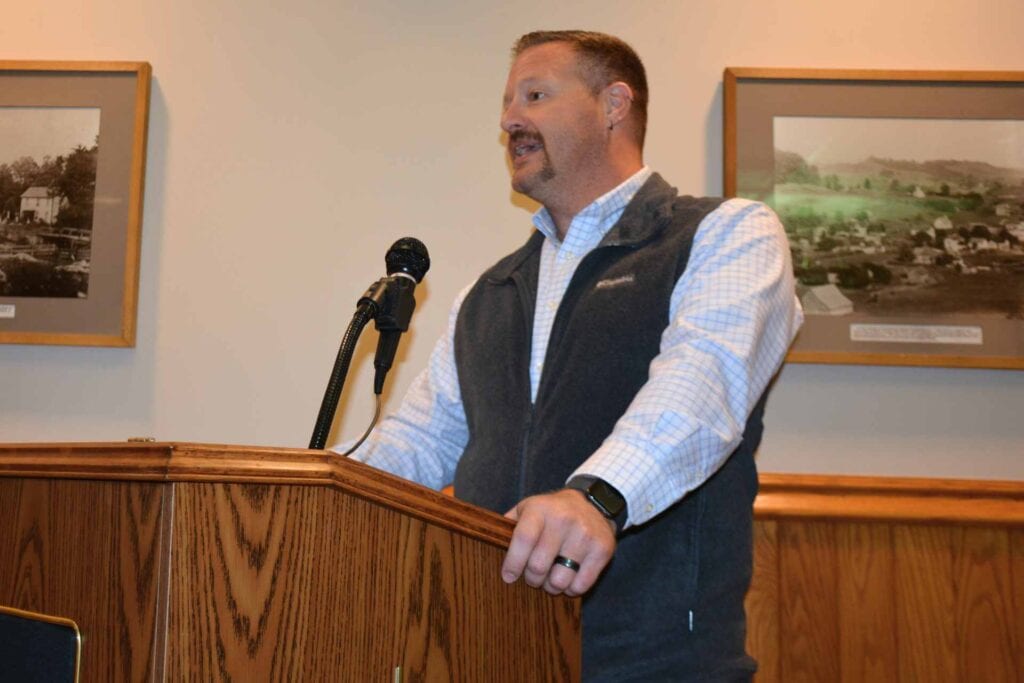
If grant funding is approved, six people — possibly two from each county – will be selected to take the same coaching class Kimble and Davis completed, they said.
“I also want you to look at it as a recruitment and retention [tool], so if educated people in the workforce look at the volunteer fire departments and say, ‘The county and city are taking care of their people,’ that’s a positive – that’s huge – because people aren’t exactly knocking down the doors to get to be members of the fire station,” Kimble said.
Hammering out the details
Commission president Kristie Tenney asked how long the training lasted, and Kimble said 12 weeks. Perry, the county administrator, had been aware of Kimble’s efforts, she said.
“I reached out to Chief Kimble because, basically, he had already started that process a long time ago, so it just seems reasonable to invest in what he’s already been striving for,” Perry said.
Kimble said the bulk cost is about $48,500, and Lewis and Randolph counties will also be allocated about $18,000 each.
Commissioner Sam Nolte suggested drafting a mission statement, an outline of who would be involved and a structured, formalized organization that would oversee the task force now and in the future. Kimble agreed.
“This is going to be a nine-month process of them coming in here and helping us create policies that we can adhere to,” he said.
Commissioner Doug Bush commended the group on their forethought, and Kimble said he wished he’d begun the process earlier.
“I’ll admit it – it’s probably one of the biggest failures of my career, and when I find out I’ve failed at something, I want to fix it, and I don’t want to go through that again,” he said.
The commission unanimously approved using the $18,000 provided through the state Office of Emergency Services to create a regional crisis response team and provide the necessary training for that team.
